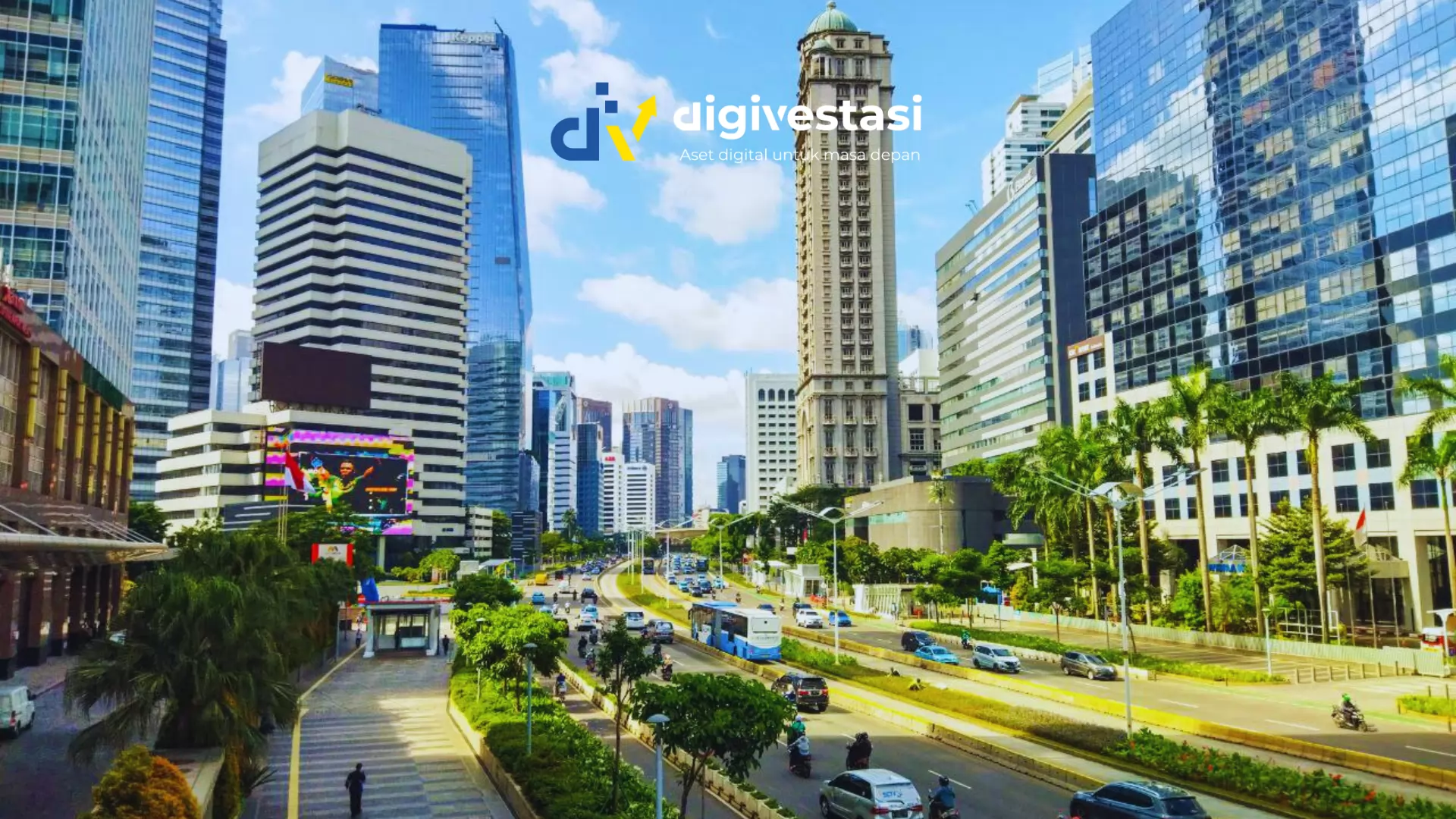
Crypto News
Deutsche Bank Set to Become Banking Partner for Bullish - The Crypto Exchange Listed on NYSE!
/index.php
Bisnis | Ekonomi - Posted on 07 November 2024 Reading time 5 minutes

DIGIVESTASI - Indonesia's Economic Growth Slows to 4.95 Percent, a Challenge for Prabowo's Administration, Indonesia's economy grew by 4.95 percent in the third quarter of 2024, a lower figure compared to previous quarters, amid President Prabowo Subianto’s ambition to push growth to 8 percent. In the first and second quarters of 2024, growth reached 5.11 percent and 5.05 percent year-on-year, respectively.
According to the Central Bureau of Statistics (BPS), this slowdown is attributed to weakening household purchasing power. This is reflected in household consumption growth, which rose by only 4.91 percent, slightly down from 4.93 percent in the previous quarter.
Additionally, the unemployment rate has increased. BPS data shows that 7.47 million people were unemployed as of August 2024, up from 7.20 million in February 2024.
Yusuf Rendy Manilet, an economist from Core Indonesia, stated that the slowdown is mainly driven by weak demand. This situation differs from the previous quarter, which was bolstered by the Ramadan and Eid al-Fitr periods. However, he noted that seasonal factors are not the primary reason. He also highlighted the decline in the manufacturing Purchasing Managers' Index (PMI), which has contributed to the economic weakening.
"The slowdown in the manufacturing sector must be a priority for the government, especially if they aim to drive higher economic growth," said Yusuf.
Yusuf also pointed out a decline in purchasing power among the middle class. He urged the government to consider aid schemes, including providing incentives for the middle class, not just low-income earners.
Economist Achmad Nur Hidayat from UPN Veteran Jakarta also stressed the importance of anticipating sustained economic decline. He pointed to weakening exports as one of the factors hindering economic growth.
"The unstable global conditions, particularly slowing demand from major trade partners like China, have had a significant impact on Indonesia's economy," Achmad explained.
Achmad advised the government to diversify exports and add value to Indonesia’s raw commodities to strengthen the domestic sector and increase the competitiveness of local products.
Meanwhile, Nailul Huda, Director of Economics at Celios, highlighted the high unemployment rate inherited from President Joko Widodo’s era to Prabowo. He emphasized that Indonesia’s current economic growth rate is insufficient to absorb the workforce optimally.
He noted that an additional 1 percent in economic growth only absorbs around 100,000 workers, much fewer than the 400,000 workers absorbed in the past. Huda also mentioned that premature deindustrialization has reduced the manufacturing sector’s contribution to GDP, now at just 18 percent, compared to 22 percent in 2010.
Huda added that if this issue is not addressed soon, a surge in unemployment could become a serious problem for Prabowo's administration.
Prabowo’s Ambitions and the Challenge of Boosting Economic Growth
Mohammad Faisal, Executive Director of CORE Indonesia, said that Prabowo’s mission to achieve 8 percent economic growth is a heavy task for his economic cabinet. He noted that Prabowo’s cabinet is still largely composed of figures from the Jokowi era, who may struggle to reach this target if they use the same approach.
"If they stick to the old ways, they shouldn’t expect to reach even 6 percent, let alone 8 percent. Bold initiatives and new approaches are needed," Faisal emphasized.
He also stressed the need for solid government cooperation, avoiding conflicting policies between ministries. One key to accelerating growth is boosting the manufacturing sector, which has a significant contribution to GDP.
Strengthening Social Policies and Maintaining Public Tariffs
Core Indonesia researcher Eliza Mardian suggested that to achieve the 8 percent growth target, the government must ensure that all segments of society, including MSMEs, SOEs, and cooperatives, benefit from economic gains. She emphasized the importance of developing basic industries in every region, taking into account local potential.
Eliza also encouraged creating stronger linkages between large and small domestic industries to establish a more robust supply chain.
Meanwhile, Next Policy Director Yusuf Wibisono highlighted the importance of fiscal policies that strengthen social assistance and maintain public service tariffs, such as commuter train fares and university tuition fees. He also recommended that the government delay the planned VAT increase to 12 percent, scheduled for 2025.
From a monetary perspective, Yusuf hoped that Bank Indonesia would take more aggressive steps to lower the benchmark interest rate to stimulate investment and boost consumer purchasing power.
"We hope that by the end of the year, the BI rate could be reduced to around 5 percent to encourage economic growth," Yusuf concluded.
Find more news and articles on Google News
Source: cnnindonesia.com
What do you think about this topic? Tell us what you think. Don't forget to follow Digivestasi's Instagram, TikTok, Youtube accounts to keep you updated with the latest information about economics, finance, digital technology and digital asset investment.
DISCLAIMER
All information contained on our website is summarized from reliable sources and published in good faith and for the purpose of providing general information only. Any action taken by readers on information from this site is their own responsibility.